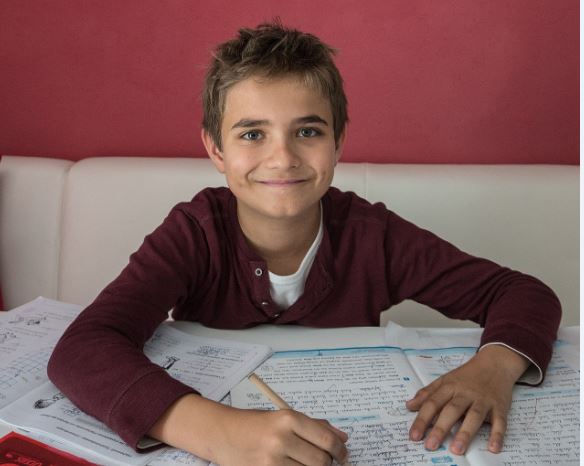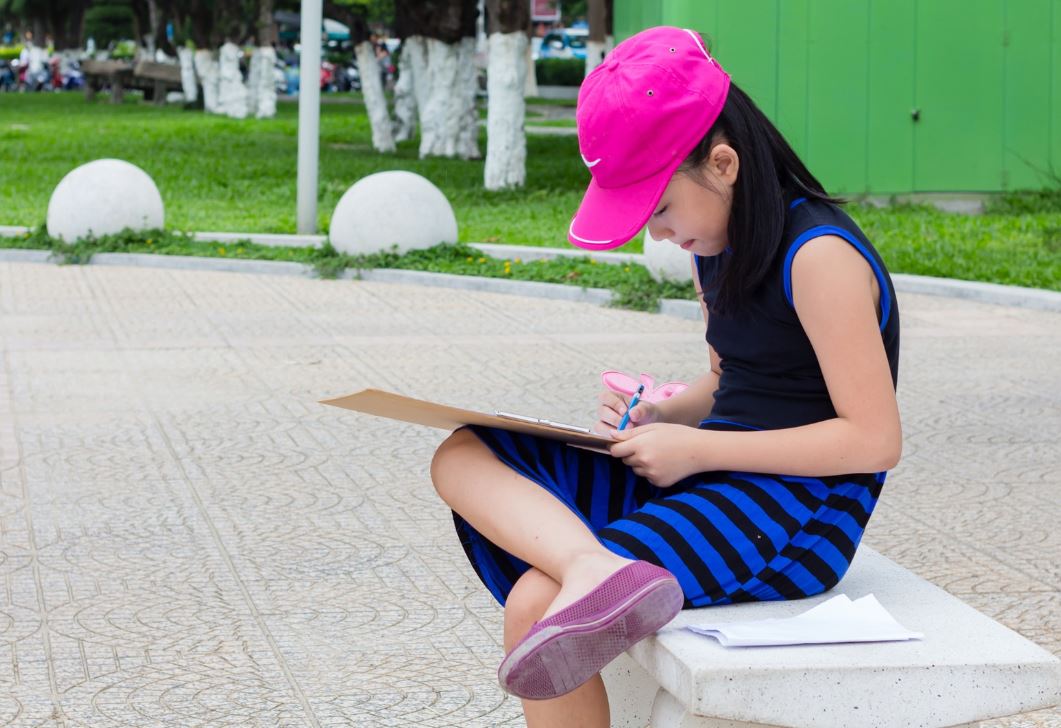
Three million Australian schoolchildren's most-used words in a writing exercise give valuable insights into the minds of school-aged children during the COVID-19 pandemic.
After a disrupted school year of remote learning and virtual classrooms during the COVID-19 lockdowns, it's not surprising that Australian students have voted for 'virus' as the Oxford Australian 2020 Children's Word of the Year (CWOTY).
While Australian children have had to grapple with global issues in a way unseen by previous generations, this year's word demonstrates the far-reaching impact of the pandemic.
Children's language experts analysed more than 50,000 short stories written by three million Australian children for this year's Storyathon writing events.
Students in years 3-8 voted on shortlisted words which included 'friends', 'virus', 'zombies', 'lockdown', 'fun', 'world', 'shocked', 'school' and 'people', to determine the 2020 CWOTY.
Anne Bayetto, literacy expert from the College of Education, Psychology and Social Work at Flinders University, highlighted the word usage of 'virus' had increased by 15,232.4% compared to 2019.
"In previous years, students may have occasionally used the word 'virus' in science-fiction texts. This year 'virus' was clearly top of mind as students were concerned about the immediate and long-term impact," Ms Bayetto says.
"Perhaps being able to write about the virus was therapeutic, as students were able to voice their concerns through a creative medium."
The complete shortlist of words paints a vivid picture of life during the pandemic for Australian children.
"The second-place contender for the CWOTY was 'friends'. Along with words like 'school' and 'fun', the analysis showed that while studying from home, children yearned for social connections that are hard to substitute outside of the classroom environment," Ms Bayetto says.
"Many children cited their desire to spend time with friends and have had to find new and virtual ways to keep in touch with their peers.
"On the other side of the coin, words such as 'zombies', 'lockdown' and 'shocked' showed remarkable popularity this year with students drawing on the challenges that Australia's young people have faced."
Ms Bayetto also notes the 2020 CWOTY - virus - is a noticeable departure from previous years.
"The words selected in the past three years of the CWOTY program have demonstrated a distinctly more positive insight into the language use of children. Words like 'creativity' in 2018 and 'bravery' in 2019 are a clear contrast to the word 'virus' which elicits feelings of concern," Ms Bayetto says.
"However, this is not the first time we have seen the social conscience of Australian children play out in their CWOTY choice. The word 'equality' was chosen in 2017, the same year as the marriage equality plebiscite. Both 'equality' and 'virus' can be seen as indicative of growing social awareness in school-aged children."
The CWOTY initiative is currently in its fourth year, however 2020 is the first year to benefit from the partnership with Storyathon, Australia's largest online story writing event.

Lee Walker, Director of Publishing at Oxford University Press, says the CWOTY research is a fascinating way to examine the stories over the course of the year and analyse language use at such a "pivotal time".
"In our analysis, we noted a surge in students writing about what was happening in the world, namely the pandemic, which ultimately has impacted almost everyone around the world in some way, shape or form," Ms Walker says.
The words collected as part of CWOTY have been added to the Oxford Australian Children's language Corpus - a collection of texts which records the development of children's linguistics over time and informs Oxford University Press's research and assessment of children's language trends.






